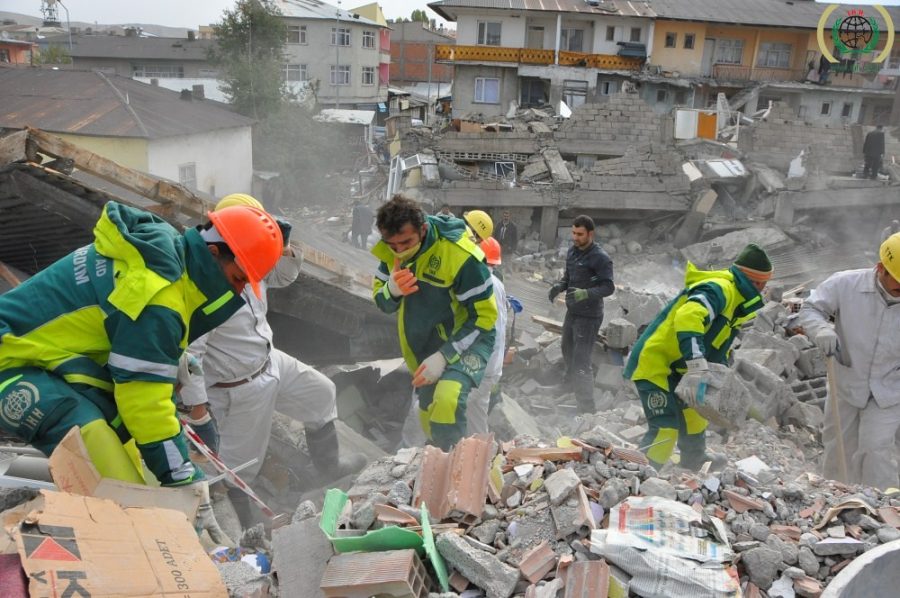International response to Turkey-Syria earthquake is disappointing
February 20, 2023
A magnitude 7.8 earthquake struck Turkey and Syria on Feb. 6, the deadliest earthquake to occur worldwide in the past decade. The death toll reached 33,000 on Feb. 12, and hundreds of thousands of others were injured.
Survivors are expressing frustration about rescue efforts, citing the excessive response time of countries promising aid. The reaction of the international community has been disappointingly lackluster and slow in a situation where utmost urgency is required.
The earthquake was so powerful that it was felt as far as Cyprus, Lebanon and Israel. Houses crumbled and buildings flattened within seconds, displacing over 100,000 people in Turkey and another 300,000 in Syria. Workers in Turkey and Syria have been searching endlessly for any signs of life in the freezing temperatures.
Even so, the resiliency of effected citizens is being broadcast to the world via social media as workers in Turkey struggled to find those who are still alive. One such story entails a 10-year-old girl who was saved after nearly six days under the rubble.
The United Nations’ top aid official expressed how the lack of efforts to help have “failed the people of Syria.”
“They feel rightfully abandoned,” British diplomat Martin Griffiths shared on Twitter from the Turkey-Syria border. “Looking for international help that has not arrived.”
Britain offered $2.7 billion worth of arms to Ukraine earlier this year, compared to only $6 million of disaster aid to the people of Turkey and Syria. Furthermore, this sum was only granted after the 15 charities that make up the Disasters Emergency Committee launched an appeal for the U.K. government to match public donations.
Meanwhile, Saudi Arabia collected $51 million in relief within four days of launching its online campaign “Sahem,” putting Britain to shame.
The stilted international response might be a result of multiple factors, including the Syrian Civil War, which has been ongoing for nearly 12 years and contributes to a complex political situation.
Other reasons include a dearth of media coverage of the natural disaster, especially in Europe.
Just three days after the disaster, Ukrainian President Volodymyr Zelenskyy visited the U.K. to meet with British Prime Minister Rishi Sunak. Large amounts of airtime were dedicated to this historical event, as well as to the Russia-Ukraine war, effectively limiting coverage of the earthquake.
Syria’s rescue group, known as the “White Helmets,” are still pleading for international help.
“We knew there were people under the ruin,” one rescuer told NBC. “We heard their cries, but we did not have the equipment to rescue them.”
The earthquake has brought attention to a population that was already suffering. World Health Organization official Michael Ryan refers to the Syrian War as a “forgotten crisis,” suggesting that the resources finally being channeled toward the country had been long overdue, even if they are fickle.
“These regions are refugees that have been displaced several times and in Syria we are speaking about 4.5 million that are dependent on aid, they don’t have sustainable livelihoods,” Ayham Taha of the international humanitarian organization CARE told PBS NewsHour. “So now, any support that was there, they feel that they were left behind.”
Taha shares that he is taking the interview from a car because his shelter is overflowing with displaced families, making it so there is never silence.
The international community is not fulfilling their promises, leaving innocent civilians to suffer. The people of Syria and Turkey are asking for the same respect and aid as other countries in crisis, such as Ukraine, but are not receiving the same response.






